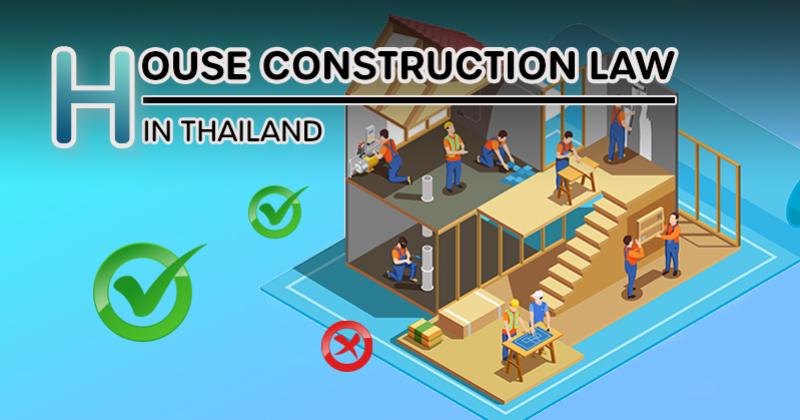
สร้างเมื่อ : 3 พ.ย. 2566
แก้ไขล่าสุดเมื่อ : 3 พ.ย. 2566
ต่างชาติซื้อคอนโด ซื้อบ้านในไทยได้อย่างไรบ้าง
ชาวต่างชาติสามารถซื้อคอนโดในประเทศไทยได้ไหม ?
คำตอบของคำถามในข้อนี้ก็คือ “ได้” แต่มีข้อกำหนดกรรมสิทธิ์ให้ถือครองได้ในจำนวนที่จำกัด ตามพระราชบัญญัติอาคารชุด(ฉบับที่ 4) พ.ศ.2551 มาตรา 19 ทวิ บัญญัติไว้ว่า “อาคารชุดแต่ละอาคารชุดจะมีคนต่างด้าวหรือนิติบุคคลตามที่ระบุไว้ในมาตรา 19 ถือกรรมสิทธิ์ในห้องชุดได้เมื่อรวมกันแล้วต้องไม่เกินอัตราร้อยละ 49 ของเนื้อที่ของห้องชุดทั้งหมดในอาคารชุดนั้นในขณะที่ขอจดทะเบียนอาคารชุดตามมาตรา 6” หรือถ้าจะพูดแบบภาษาชาวบ้านเลยก็คือ...ชาวต่างชาติจะสามารถซื้อคอนโดแบบถือครองกรรมสิทธิ์โดยสมบูรณ์ (freehold) ได้ไม่เกินร้อยละ 49 ของพื้นที่ยูนิตทั้งหมดของทางโครงการคอนโด
ยกตัวอย่างเช่น
โครงการคอนโดแห่งหนึ่งมีจำนวน 200 ยูนิต และแต่ละยูนิตมีพื้นที่ 100 ตารางเมตร ซึ่งก็จะรวมพื้นที่ทั้งหมดได้ 20,000 ตารางเมตร เพราะฉะนั้นชาวต่างชาติจะสามารถถือครองกรรมสิทธิ์โดยสมบูรณ์ (freehold) ได้ 9,800 ตารางเมตร เป็นต้น
*** แต่ถ้าหากคอนโดแห่งไหนมีสัดส่วนชาวต่างชาติถือครองกรรมสิทธิ์อยู่ครบแล้ว
ชาวต่างชาติท่านอื่นๆ ก็จะไม่สามารถซื้อคอนโดแห่งนั้นๆ ได้อีก ***
นอกจากซื้อคอนโด ชาวต่างชาติสามารถซื้ออสังหาฯ ประเภทอื่นๆ ได้อีกหรือไม่ ?
สำหรับคำตอบของคำถามนี้ก็คือ “ไม่ได้” เพราะโดยปกติแล้วชาวต่างชาติจะไม่สามารถซื้ออสังหาฯ ประเภทอื่นๆ ได้เลย นอกจากโครงการคอนโด แต่! ถ้าหากชาวต่างชาติได้จดทะเบียนสมรสกับชาวไทย ก็สามารถซื้ออสังหาฯ ประเภทอื่นๆ ได้ ไม่ว่าจะเป็น ทาวน์เฮาส์ ที่ดิน หรือแม้แต่บ้านเดี่ยวตามโครงการหมู่บ้าน ด้วยการเป็นผู้กู้ร่วมกับคู่สมรสชาวไทยหรือเป็นผู้ค้ำประกันให้กับคู่สมรสชาวไทยซึ่งเป็นผู้กู้หลัก
การซื้อบ้านซื้อคอนโดของชาวต่างชาติมีขั้นตอนเบื้องต้นดังนี้
ดังที่คุณทราบแล้วว่าชาวต่างชาติกู้ซื้ออสังหาฯ ในไทยได้ แต่ประเภทของอสังหาริมทรัพย์ที่ชาวต่างชาติสามารถถือกรรมสิทธิ์ได้ในฐานะบุคคลธรรมดานั้นมีเพียงประเภทเดียวก็คือห้องชุดหรืออาคารชุด หรือที่เรานิยมเรียกกันว่าคอนโดภายใต้ข้อจำกัดที่ว่าคอนโดมิเนียมโครงการหนึ่งจะมีการถือครองโดยชาวต่างชาติได้ในสัดส่วนที่ไม่เกิน 49% ของเนื้อที่ขายของห้องชุดทั้งหมดในอาคารชุดนั้น ๆ
การชำระเงินของชาวต่างชาติซื้อคอนโดในไทยนั้น เงินในการชำระทั้งหมดจะต้องมาจากต่างประเทศ โดยมีขั้นตอนดังนี้
การโอนเงินมาที่ประเทศไทย ชาวต่างชาติซื้อคอนโดสามารถโอนให้กับดีเวลลอปเปอร์หรือผู้ขายได้โดยตรง หรือโอนเข้าบัญชีตนเองก่อนแล้วค่อยโอนให้ผู้ขายต่อไปก็ได้
ชาวต่างชาติที่โอนเงินจากต่างประเทศ ผู้ซื้อจะต้องมีบัญชีในธนาคารต่างประเทศอยู่แล้ว จึงจะสามารถทำเรื่องโอนเงินจากธนาคารต่างประเทศมาให้ดีเวลลอปเปอร์หรือผู้ขายในไทย ซึ่งสามารถโอนเงินให้ผู้ขายโดยตรง หรือโอนเข้าบัญชีตนเองก่อนแล้วค่อยโอนให้ผู้ขายต่อไปก็ได้เช่นกัน
ยกเว้นกรณีของชาวจีน ซึ่งมีความพิเศษแตกต่างจากชาติอื่น ๆ เนื่องจากกฎหมายในจีนไม่อนุญาตให้คนจีนโอนเงินซื้ออสังหาริมทรัพย์ในต่างประเทศดังนั้น ถ้าชาวจีนคนไหนที่จะซื้อคอนโดในไทยจะต้องทำการเปิดบัญชีธนาคารในประเทศไทยก่อน แล้วค่อยทยอยโอนเงินจากต่างประเทศเข้าบัญชีธนาคารตัวเองในไทย
โดยกฎมายของจีนระบุไว้ว่า ชาวจีนสามารถโอนเงินไปต่างประเทศได้สูงสุด 50,000 ดอลลาร์สหรัฐต่อคนต่อปีเท่านั้น ซึ่งถ้าต้องการซื้อคอนโดฯ ในราคาที่สูงกว่านี้ อาจให้บุคคลอื่นโอนเงินเข้าบัญชีผู้ซื้อในไทย หลังจากโอนเงินมาที่บัญชีธนาคารผู้ซื้อในประเทศไทยแล้ว ถึงจะสามารถโอนเงินชำระค่าห้องคอนโดกับดีเวลลอปเปอร์หรือผู้ขาย
การเตรียมเอกสารเพื่อยืนขอสินเชื่อบ้านสำหรับชาวต่างชาตินั้นจะคล้ายคลึงกับการเตรียมเอกสารเพื่อขอกู้บ้านของชาวไทย คือจะแบ่งเป็นเอกสารออกเป็น 3 กลุ่ม ได้แก่
– กลุ่มที่ 1 เอกสารประจำตัวผู้ขอสินเชื่อ สำหรับชาวต่างชาติเอกสารชุดนี้จะประกอบไปด้วย หนังสือเดินทาง (Passport) ใบอนุญาตเข้าประเทศไทย (Visa) และใบอนุญาตทำงานในประเทศไทย (Work Permit) หากจดทะเบียนสมรสกับคนไทยต้องเตรียมทะเบียนสมรสด้วย
– กลุ่มที่ 2 เอกสารแสดงความสามารถทางการเงิน ได้แก่ หนังสือรับรองเงินเดือน หนังสือแสดงการจ่ายเงินเดือน (Payment Slip) สมุดบัญชีเงินฝากธนาคารเพื่อแสดงรายการเดินบัญชีย้อนหลัง หนังสือแสดงภาษีเงินได้ประจำปี หรือหนังสือรับรองการหักภาษี ณ ที่จ่าย
– กลุ่มที่ 3 เอกสารแสดงรายละเอียดหลักทรัพย์ เป็นเอกสารที่แสดงรายละเอียดเกี่ยวกับอสังหาริมทรัพย์ที่ต้องการขอสินเชื่อเพื่อซื้อ ในกรณีนี้คือ คอนโดมิเนียม ได้แก่ หนังสือแสดงกรรมสิทธิ์ห้องชุด (อ.ช. 2) แผนที่ตั้งอาคารชุด แผนผังห้องชุด รูปถ่ายอสังหาริมทรัพย์ สัญญาจะซื้อจะชาย สัญญามัดจำ หรือหลักฐานการชำระเงินดาวน์
ขอขอบคุณข้อมูลจาก

